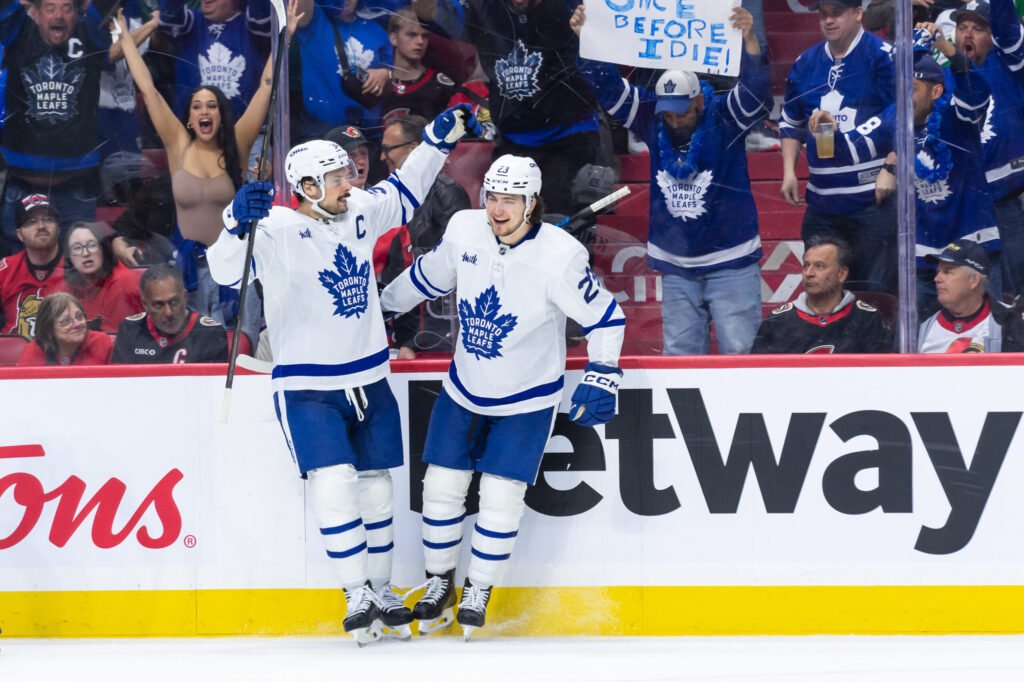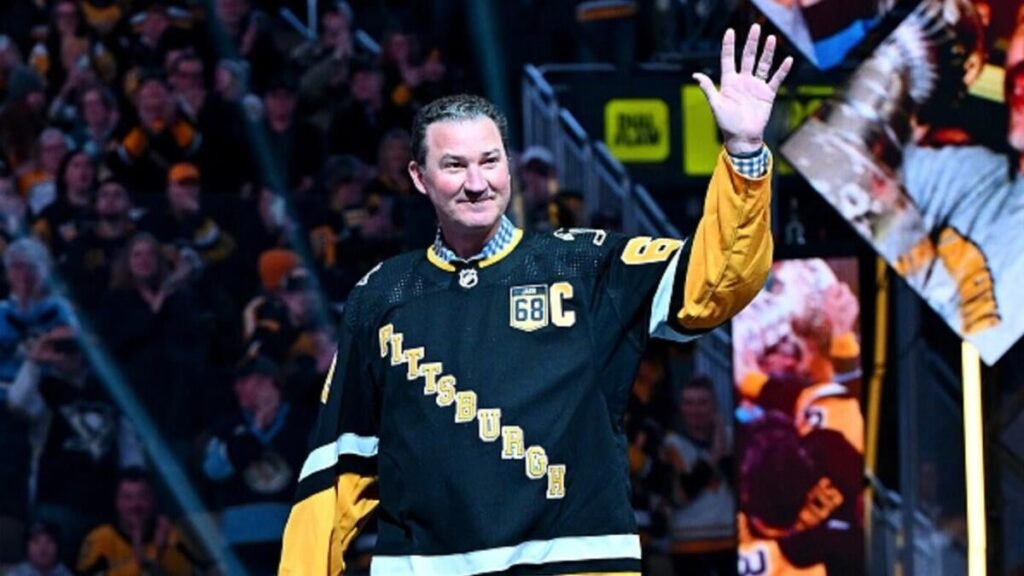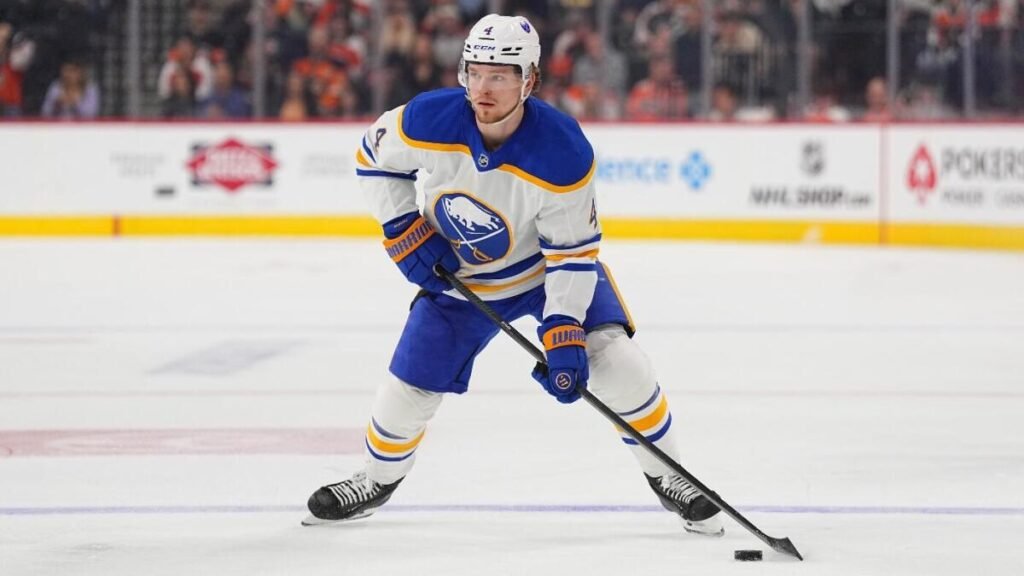If you’ve been following the debates this offseason about the Toronto Maple Leafs, you’ve heard the same line over and over: with Mitch Marner gone, Auston Matthews no longer has a shield. The argument goes that Matthews is now fully exposed. If he fails again in the playoffs, there’s no one else left to blame.
Related: NHL Rumors: Crosby Trade, Leafs & Dube, Blackhawks and Oilers PTOs
That’s the easy narrative—and on the surface, it makes sense. But I think the reality is more complicated than that.
The Critics’ Case About Matthews: There’s No More Excuses
Many fans view Matthews as a player who has been coddled for too long. They recall his “passengers” comment and his quietest moments in major elimination games. They argue he’s been given endless benefit of the doubt, while others (including Marner) have taken the heat.
In their view, Marner’s departure strips away that cover. This is Matthews’ team now. He’s got the “C” on his chest, he’s got the franchise-player status, and he has no more excuses.
That’s the prevailing wisdom. But in this post, I want to push back a little.
The Complicated Bond Between Matthews and Marner
Matthews and Marner weren’t just linemates—they were best friends. They came into the NHL around the same time, spent almost their entire careers on the same line, and were inseparable off the ice. That closeness isn’t a bad thing in itself. But when one of them gets handed the captaincy and the other doesn’t, it creates a subtle — but very real — tension.
Related: Maple Leafs News & Rumours: Matthews’ Winger, Line Combos & Deadwood
Matthews may have had the title of captain, but Marner’s presence meant he was never really alone in that space. He likely felt protective of his friend, but also conflicted. Leadership often requires stepping out front and setting a tone, even if that means leaving someone else behind.
Could Matthews ever truly do that with Marner at his side? Could he assert himself as the voice when his best friend wasn’t given that same role?
In that sense, Marner wasn’t a shield. He was a weight—a psychological anchor. Matthews might have deferred more than we realize—not because he wasn’t capable, but because he was balancing friendship with leadership.
Why This Season Should Feel Different for Matthews
Now, for the first time in his career, Matthews doesn’t have that balancing act. Marner isn’t in the room. He isn’t on his wing. He isn’t a guy Matthews feels the need to look out for.
Related: With Matthews Leading, the Maple Leafs Enter 2025–26 Without Panic
This could be more liberating than fans know. Matthews can step fully into the captaincy without worrying about how it affects his closest friend. He can establish himself as the lone centrepiece in a way he never has before. The leadership is his, unshared and undisputed. That’s new territory—and it might bring out a version of Matthews we haven’t seen yet.
Matthews’ Critics Still Have a Point
Of course, none of this erases the playoff record. If Matthews fails again, nobody will care about the psychological dynamics of his friendship with Marner. Fans will say he crumbled again under pressure. That’s the cold truth.
But leadership isn’t just about results—it’s also about context, and the context has changed. Matthews no longer has to juggle the role of captain with the pull of being Marner’s closest ally. That’s not a small thing. It could be the shift that allows him to embrace the responsibility he’s carried in name but not always fully in person.
This Season, Will Matthews Be Freed as Opposed to Exposed?
So yes, the critics are right in one sense: Matthews doesn’t have a shield anymore. But I believe they’re missing the more interesting and complex part of the story. He’s not just exposed—he’s free. Free from the burden of navigating both friendship with Marner and leadership of Marner simultaneously.
Fans often suggest that professional athletes should “just separate” friendship from their roles, but from my life experience, that seems simplistic. In tightly knit teams, strong relationships amplify both performance and pressure—what affects one player inevitably affects the others.
Related: Maple Leafs’ Henry Thrun Should Earn Bottom-Pairing Role for 2025-26 Season
The real question isn’t whether Matthews will collapse without Marner. It’s whether, unburdened, he can finally rise into the role that’s always been waiting for him.




